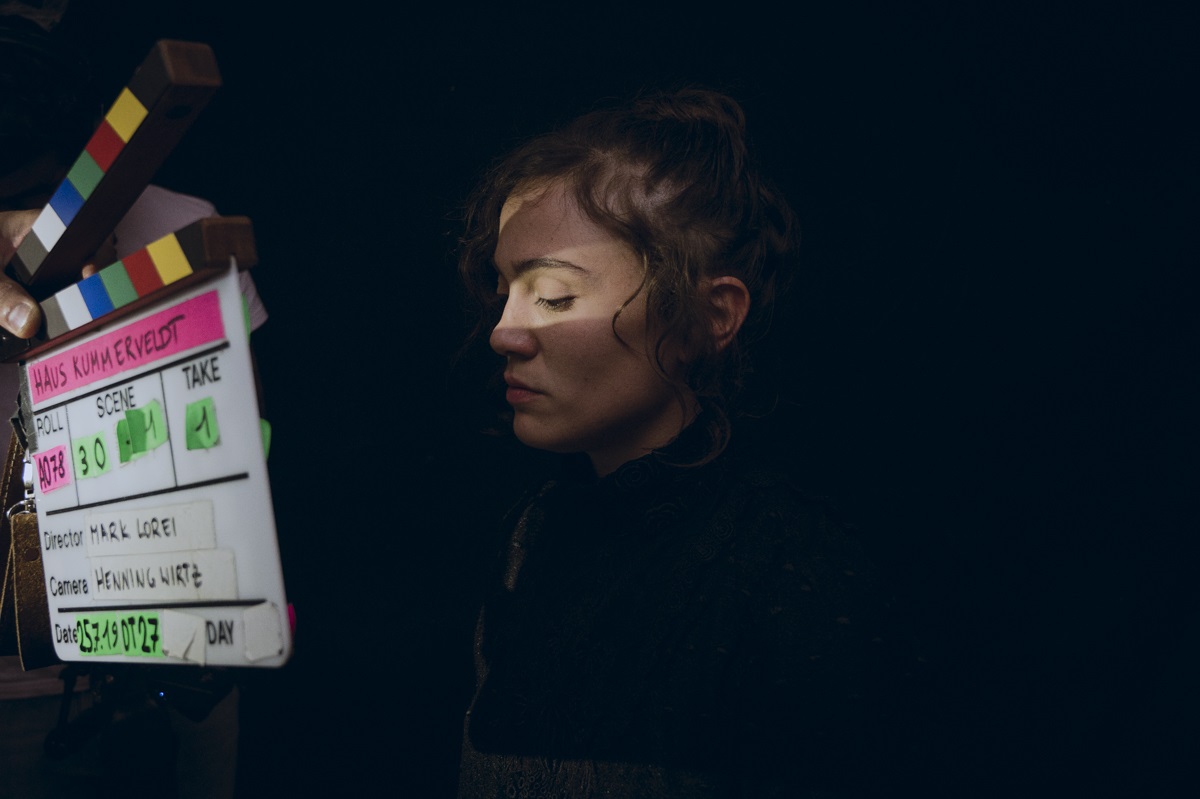
Milena Straube as Luise von Kummerveldt © ABBYLL
Germany’s first historical web series tells the story of Luise von Kummerveldt (Milena Straube), a passionate writer born into a respectable family, who is restrained from pursuing her dream of becoming famous by the patriarchist norms of the German Empire – embodied through the person of her brother Veit (Marcel Becker-Neu). Her first manuscript has just been finished when her father (Michael Goldberg) dies and her new legal guardian Veit plans to marry off his sister. So she jumps out of the window and begins to seize control of her own destiny. Because Luise knows that nothing weighs on one as heavy as being denied the means to form your own identity: “They read my name and thought it was all, as if it were already my story.”
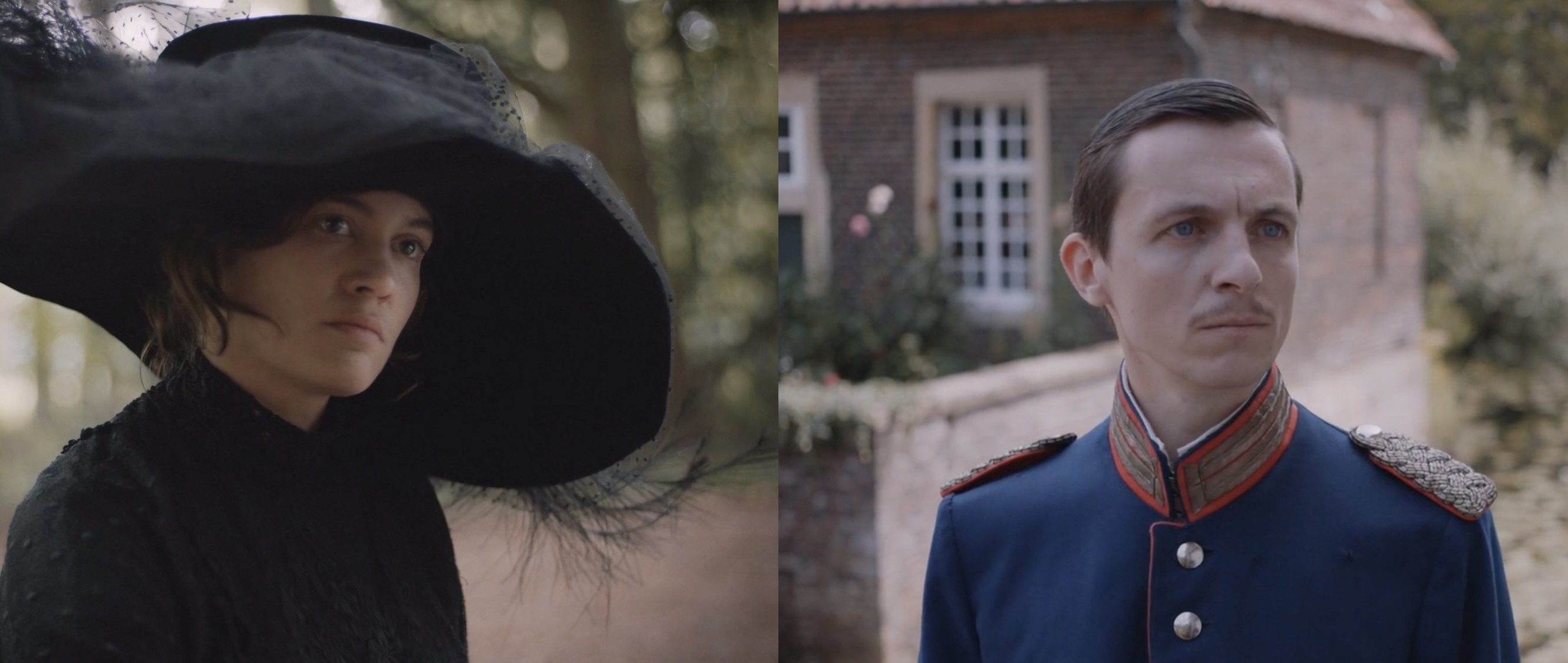
Milena Straube as Luise von Kummerveldt and Veit von Kummerveldt, Luises brother (Marcel Becker-Neu)
In fact, there is a lot more to the story of Haus Kummerveldt than you can see at first glance – as we found out in an interview with director Mark Lorei. The director, author and historian, born in Bocholt in the Münsterland region (Germany) in 1986, studied history with a focus on Visual History. He started making short and experimental films early on and founded the “fettepolarelipide filme” film collective in 2008. After finishing his studies, he completed a traineeship at the Landesmedienzentrum für Westfalen (LWL), from which the first major series project Preußen in Westfalen (2018) developed. The setting of this historical web series is, just like in his latest series Haus Kummerveldt, the historical Münsterland.
die Seriale: Mark Lorei, the Münsterland plays a central role in your biography as well as in your previous web series. In Haus Kummerveldt you can see, for example, the Hülshoff Castle – the former residence of the writer Anette von Droste-Hülshoff – but also other historical places from the region, which you once described in an interview as “the best of the best of the Münsterland”. Where does the interest in these places and history of the Münsterland come from?
Mark Lorei: Some time ago I thought about what I did for longer trips: Actually I’ve only been outside of the Münsterland more than four weeks at a time once. So in a way I am very provincial, but I find the term “Heimat” difficult and avoid it because it is co-opted from the political right and one gets tired of connoting this term positively. But if I didn’t connect anything positive with my region of birth, I would certainly have moved already. When I am in larger cities for two or three days, for example in Berlin, I always feel good about returning to the Münsterland.
die Seriale: So it made sense, to also take up this regional connection in your work on film?
Mark Lorei: Of course I also deal with the region in my works, but “Preußen in Westfalen” or Haus Kummerveldt are not primarily telling the history of the Münsterland. We are trying to address something universal against this regional backdrop. In this context, my motto is to mirror the macrocosm in the microcosm. The plot could also take place in a different location, but since I’m from the Münsterland and I know my way around here the decision in favour of this region seemed natural. Especially in view of the web series Haus Kummerveldt, that is set within the context of the nobility and benefits from the variety of castles and palaces that can be found here. These historical buildings are among the really outstanding cultural features of the Münsterland.
die Seriale: You did not go through the classical film education, but realized first projects parallel to your history studies. Would you call yourself an autodidact?
Mark Lorei: Well, I didn’t fall from the sky as a filmmaker. I went through a learning process – not at a film school, but rather through detours. As a teenager, I had a great interest in cinema and made short films that you wouldn’t show to anyone today. So at least, filmmaking was always a theme for me, but at that point I would never have thought of studying film. As I said, I grew up in Bocholt in the Münsterland region and at that time I didn’t even know that there was something like a film school.
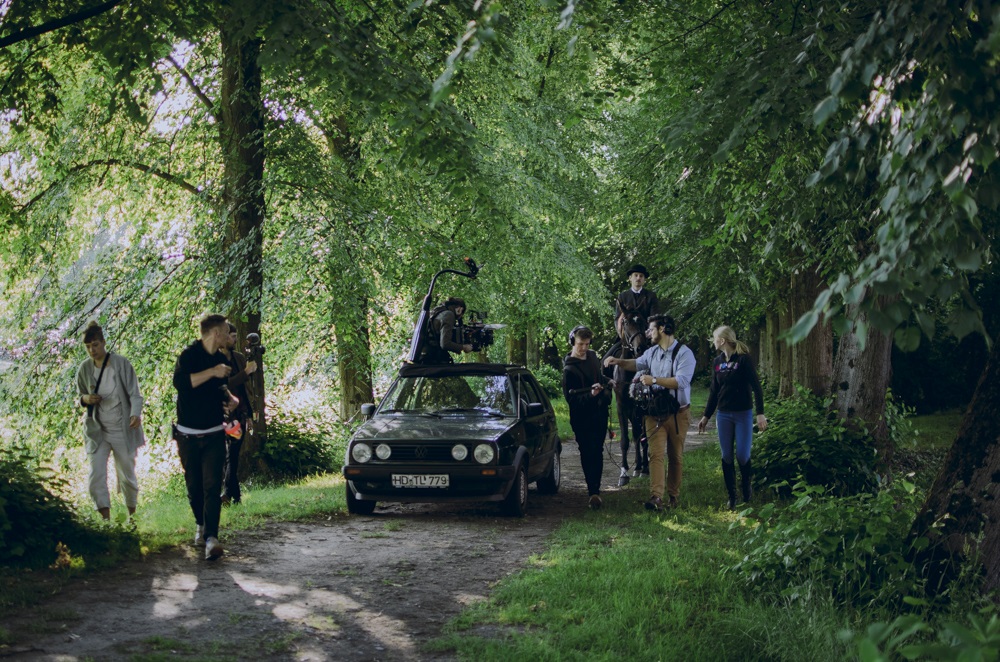
On the set of Haus Kummerveldt at the estate Haus Runde in Münsterland © ABBYLL
die Seriale: In which way were you influenced by your studies in history?
Mark Lorei: As part of my studies, I concentrated on the theoretical aspects of film history and realized a few smaller projects in the course of founding the “fettepolarelipide filme” film collective. It was a classic student thing: “Let´s make films that nobody understands and nobody wants to see.” But it sure was a lot of fun and I really learned a lot during that time. Of course, you only really understand filmmaking when you have to deal with a budget. This has arisen over time, in fact also because I have always been very critical on the subject of history in film. If you think about historical documentaries: “I could do better!” I had the opportunity to try it during my studies and later I was able to do some small projects for the Landesmedienzentrum für Westfalen (LWL). Then one thing led to another and finally Prussia in Westphalia was realized, where a certain budget was available for the first time and with it the trust to implement a web series with that money. This series is very historical-didactic, primarily a documentary, mixed with fictional elements. However, this project attracted so much attention that I was then able to apply for regional funding that helped produce Haus Kummerveldt.
die Seriale: We may come back to discussing the financial aspects of the production of web series. Let´s stay with Haus Kummerveldt for the time being: behind the idyllic backdrop of the Münsterland, the everyday abysses of the German Empire are revealed, an era that plays a rather subordinate role in the German culture of remembrance – especially in comparison to the Nazi era. Was that the reason why the story takes place during the time of Wilhelminian Empire?
Mark Lorei: Kind of. Of course it was not the case that I wanted to tell the story of a literary woman and then thought about when the action could take place. I had already dealt with the 19th century for the short film Sieben Stecknadeln (2017) a few years ago. In addition, as you said, there are many films dealing with the Nazi era and I was less interested in this from an artist’s point of view. Of course in light of the German culture of remembrance, it is important that artists continue to deal with the Nazi era. But I was particularly interested in its prehistory. And especially in view of what is currently happening on the right in Germany, I find that a strange idealization of the German Empire is taking place.
die Seriale: To what extent?
Mark Lorei: Most people agree on the fact that the Nazi era was dreadful, but the opinion that there was still a kind of positive patriotism in the Wilhelminian Empire is widespread. However, if you take a closer look at history, there was already an aggressive nationalism that ultimately led to the catastrophe of the 20th century. In addition to that, I feel like certain structures of nationalist and sexist nature have survived until today – despite all the achievements and changes. It is terrifying and disillusioning how much of the present can be recognized in the history that took place one hundred years ago.
When I work with actors and actresses, to me it is particularly important to give an impression of the time we are dealing with. Especially with the actor Marcel Becker-Neu, I sat down intensively to convey what type of person Veit, the brother and antagonist of Luise von Kummerveldt, is: that is, someone who would be at the forefront in war against France.
die Seriale: I find a particularly interesting, in a scene, the baron picks up the young Veit from a poor farming family after the children have played a trick on the farmers and Veit failed to escape. So the baron has his son peeling potatoes with the pigs – since a bit of pedagogy does no harm – he sits down at the table and invites himself to dinner. Now, while the soup-cooking wife complains about that since there is a lack of food, her husband is amazed – perhaps because he feels honoured – and the baron philosophizes about the equality of people and demands some meat… What does this scene tell us about society at that time?
Mark Lorei: Perhaps the question is rather what the scene can tell us about today’s society. Of course, this honour is a dubious one. After all, the family has less to eat, especially less ham, which at that time – unlike today – was an absolute luxury item. Privileged people like the Baron, however, have little social sensitivity. What it actually means to live in poverty is only a theorem for him and he therefore does not notice that he accepts this gradient of exploitation as a given – but on such a comfortable philosophical level he can spare a thought on the supposed equality of humanity.
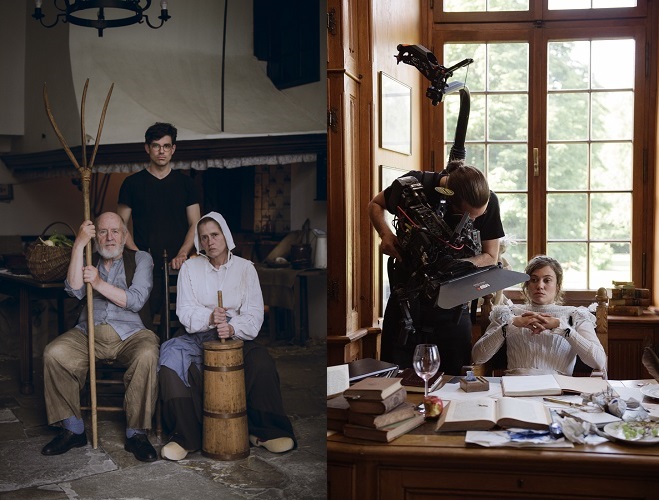
Left: Hannes Demming (farmer), Mark Lorei (director), Sophia Demming (maid) © ABBYLL, Right: Henning Wirtz (DOP) and Milena Straube as Luise von Kummerveldt © ABBYLL
die Seriale: He says: “One has to keep up with the times, occasionally mingle with the peasants.”
Mark Lorei: Exactly. And I often get that impression today. In our affluent society we have great moral and ethical ideas, but especially on the individual level most people do not act on behalf of those ideals: for example, when you buy cheap goods that are produced under questionable circumstances – such as clothing or food. The gap between rich and poor was more extreme in Germany at the time, but exploitation continues to be present, particularly on a global scale. At the same time, we have this romantic notion that we should all be somehow the same. At least that’s what we claim, but usually we do not live accordingly. Although this is not a particularly original comment, we probably wanted to express that in that scene.
die Seriale: To come back to the relationship between past and present in the film: You have already indicated that current social trends have also been incorporated into the work, such as right-wing populism or the #MeToo movement. So from the historical context of the series a certain bridge is being built to the present. Ultimately, it is the case that the audience looks at the story from today’s perspective and automatically seeks for parallels to their environment. Is that also something you learned in historical-science? That your own perspective always transcends time?
Mark Lorei: Absolutely. Moreover, it’s not just the audience that understands history in this way, but we as producers of the series also look at that time from today’s perspective. What I learned in course of my history studies and also tried to apply on film is that you cannot create complete authenticity. You can only approach the past, but you cannot bring it back and look at it objectively: Time is simply gone and the people are dead. You can scientifically research their legacies, you can approach it artistically, but only from the present perspective. To create transparency regarding that issue, it was important for the story of “Haus Kummerveldt” to deliberately incorporate anachronisms, as can be seen with the soundtrack, for instance. We used modern pop music to make it audio-visually clear that something is wrong here: In such moments the series doesn’t feel like the 19th century. This breach can reveal that it is a current perspective on history. After that, it is legitimate to ask what this time can tell us about our own. So we span an arc from our time to the Empire and back again.
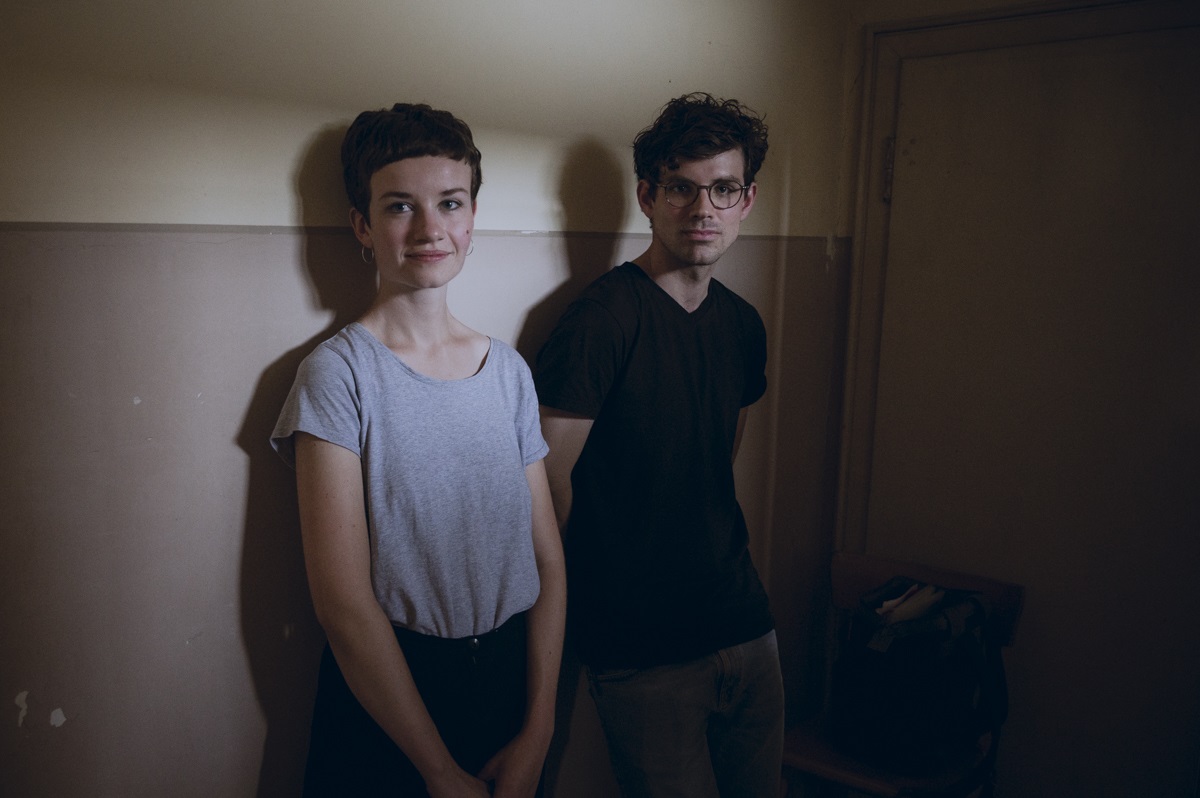
Cecilia Röski (Screenwriter) and Mark Lorei (Creator and Director) on set © ABBYLL
die Seriale: So these audio-visual breaches are programmatic. Were there other reasons why the thematically quite melancholic and serious story, which spares background music for long stretches, is repeatedly interrupted – not only by the modern soundtrack – but also by surprising humour and this sometimes excessive visual language?
Mark Lorei: It starts with the fact that the screenplay was not primarily written by me, but first and foremost by the screenwriter Cecilia Röski. Although I came up with the setting and gave the historical input, it certainly owes Cecilia the contemporary coolness factor and wit. In addition, she has an extremely good sense of the relevance of socio-political issues from the present day – as a history nerd I can hardly keep up with that. I think that’s where this ambivalence originated from. As far as the sound design is concerned: I think that permanent sound is always terrible. You shouldn’t want to constantly explain to viewers what they have to feel. The audience isn’t that simple-minded these days. Our sound designer Florian Högerle and I agreed to work with little background music and to let the scenery and nature speak for itself.
The resulting style was discussed in many feedback rounds. Most of the time, younger people liked it more than older people, who often complained that it didn’t really fit their expectations on that history. But I think that’s not the point. The exaggeration is intentional – in the end it’s a film – and either you like it or not. I find it exciting when a film is aesthetically polarizing like that.
die Seriale: Let’s talk about the financial aspects of web series. It is clear to say that money is an important subject because the internet has cultivated a mentality that everything is free of charge. At the same time, historical projects are very expensive due to the fact that they depend on, for instance, an elaborate costume design. How did you decide to produce a web series in view of that?
Mark Lorei: So from a financial point of view it wasn’t too successful. But it is ultimately more of a reference project for everyone involved anyways. For the decision to produce a web series there were both pragmatic and artistic reasons: After the idea for the story was developed, we were able to get official support through regional contacts, where it was crucial that the web series is currently a very new and exciting format and there is a willingness to support such projects. Nevertheless, our budget was of course limited, which can be problematic for historical topics. We were often told that such a project with such a small budget is impossible to realize – and it actually is. But our producer Lotte Ruf proved that it in fact can be possible. I’m still fascinated by how in the end everything worked out. From an artistic point of view, particularly appealing to me about the web series is that this young format is a large field of experimentation in which a great deal of creativity is possible. In addition, the historical spectrum is still not very represented here, which made it very exciting for me. We were able to try out stuff that wasn’t touched on much yet. For example, we experimented with social media strategies, such as vlogs and Instagram stories, which are still being worked on to accompany the series online in the future.
die Seriale: The story about Luise von Kummerveldt could still be continued. Will there be a second season, or will you turn to other historical projects?
Mark Lorei: I don’t think the story is finished yet. We have left an open end and there are already ideas on how to continue. At the same time, I am also devoting myself to other projects, but in any case it remains historically with me.
Interview: Robert Wolff
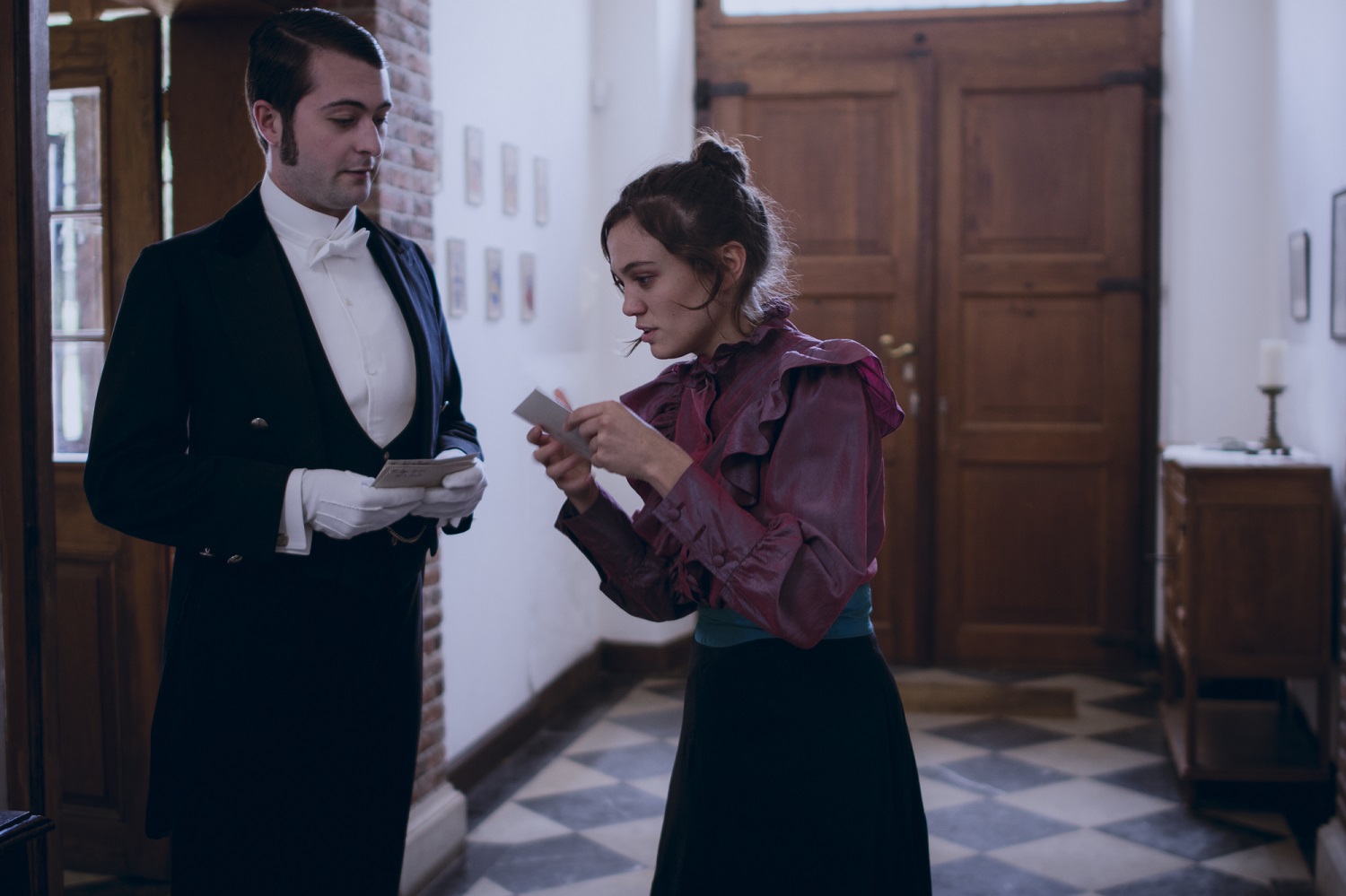
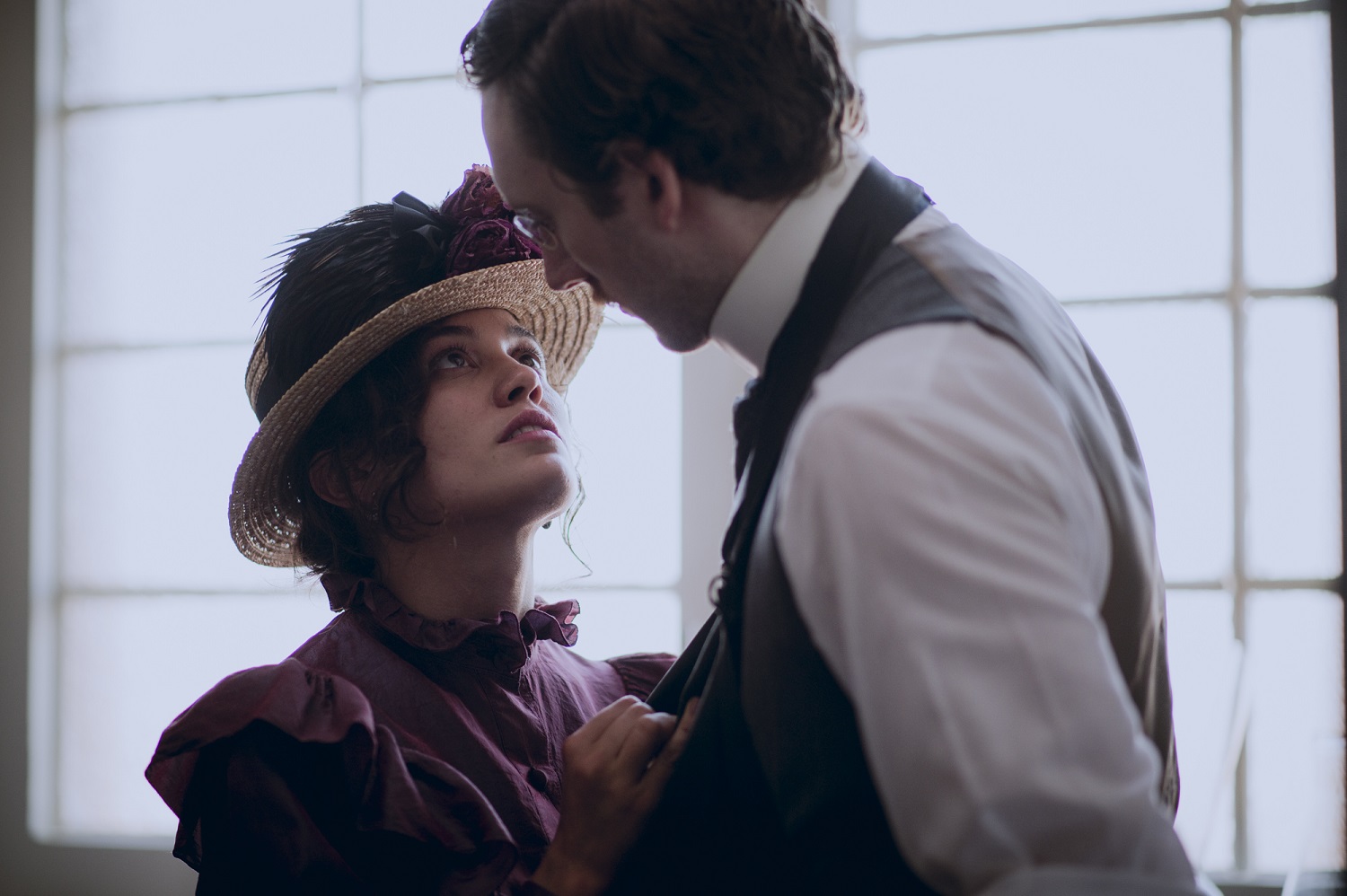
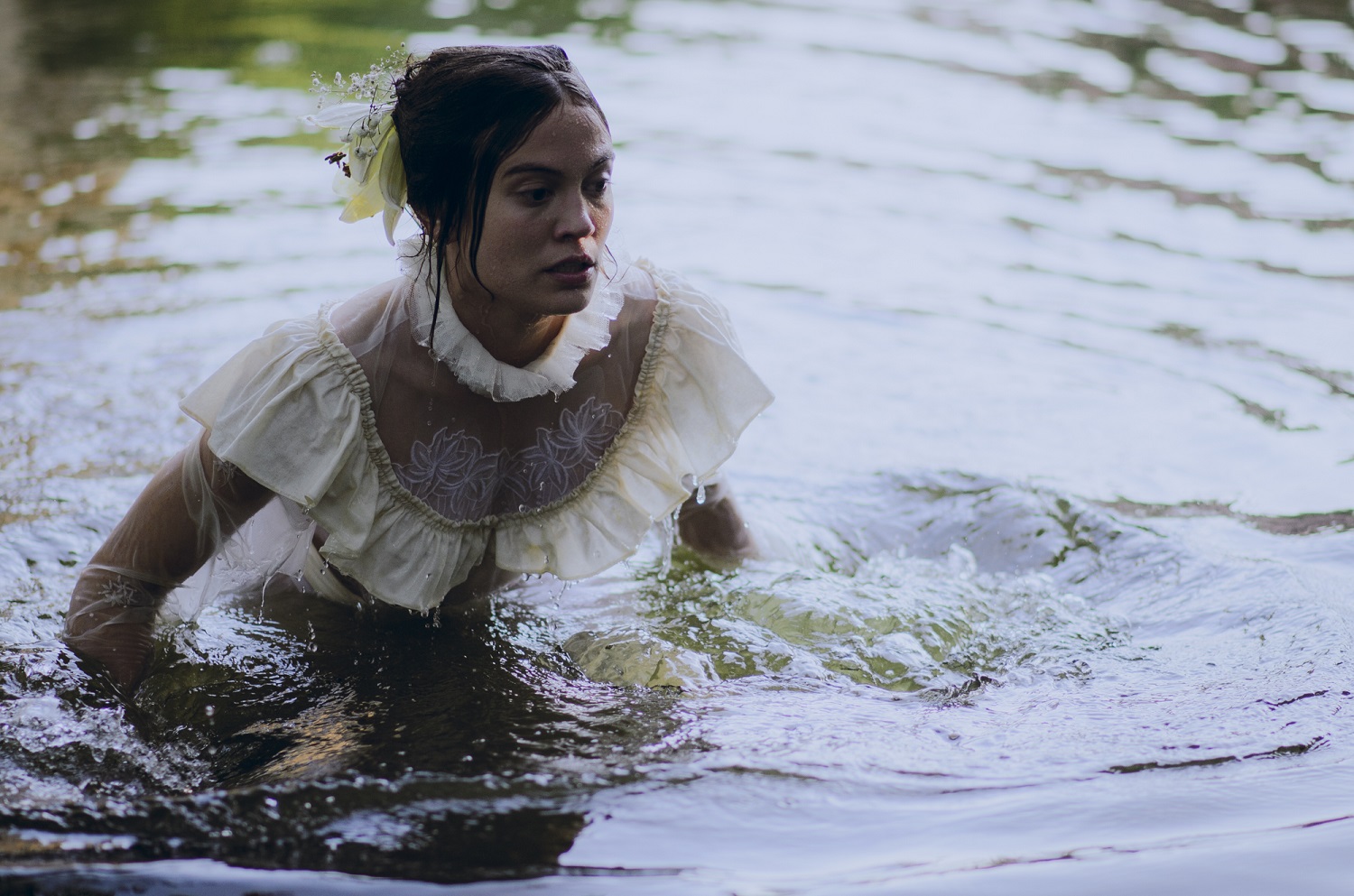
Stills of Haus Kummerveldt © Haus Kummerveldt
Haus Kummerveldt (2020)
Country: Germany
Genre: Historic
Runtime: 8 x 10 min
Director: Mark Lorei
Writer: Cecilia Röski
Producer: Lotte Ruf
Cast: Milena Straube, Marcel Becker-Neu
